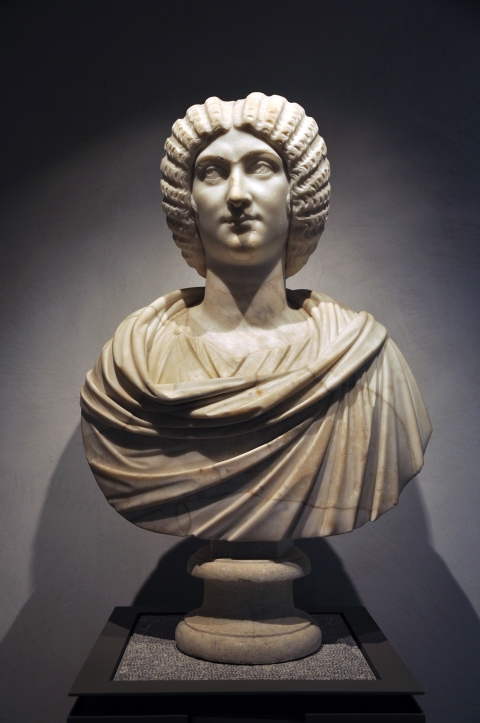In 2001, Janet Stephens, a Baltimore hairdresser, caught sight of a bust of Roman empress Julia Domna at the Walters Art Museum (the image above is of a bust in the Louvre). Captivated by the philosopher empress’s hairdo, she thought “holy cow, that is so cool… like a loaf of bread sitting on her head.” Thus began Stephens’ quest to recreate the coiffures of ladies of antiquity.
Stephens first set about trying the empress’s hairstyle on a mannequin, with no success. She undertook some research and found that scholars generally assumed that the elaborate, sculpted hairstyles of Roman ladies could only be wigs. This set off Stephens’ skeptic detector, and—armed with no more than her free time, some dogged research methods, and a few volunteer models—she ventured to disprove the scholarly consensus. As The Wall Street Journal tells it:
In 2005, she had a breakthrough. Studying translations of Roman literature, Ms. Stephens says, she realized the Latin term “acus” was probably being misunderstood in the context of hairdressing. Acus has several meanings including a “single-prong hairpin” or “needle and thread,” she says. Translators generally went with “hairpin.”
The single-prong pins couldn’t have held the intricate styles in place. But a needle and thread could. It backed up her hair hypothesis.
Her persistence paid off. In 2008, she published an article in the Journal of Roman Archaeology detailing her findings on Roman hair. Stephens is now a recognized authority on ancient hairstyles and a “hair archaeologist.”
See Stephens at work and hear WSJ reporter Abigail Pesta tell the story in the video below.
Josh Jones is a writer, editor, and musician based in Washington, DC. Follow him @jdmagness



Interesting. Thanks for posting.
I read Kottke too, but thanks for playing!
^ I have no idea what this means.
Emily must be referring to this:
https://kottke.org/13/02/archaeological-hairstyling